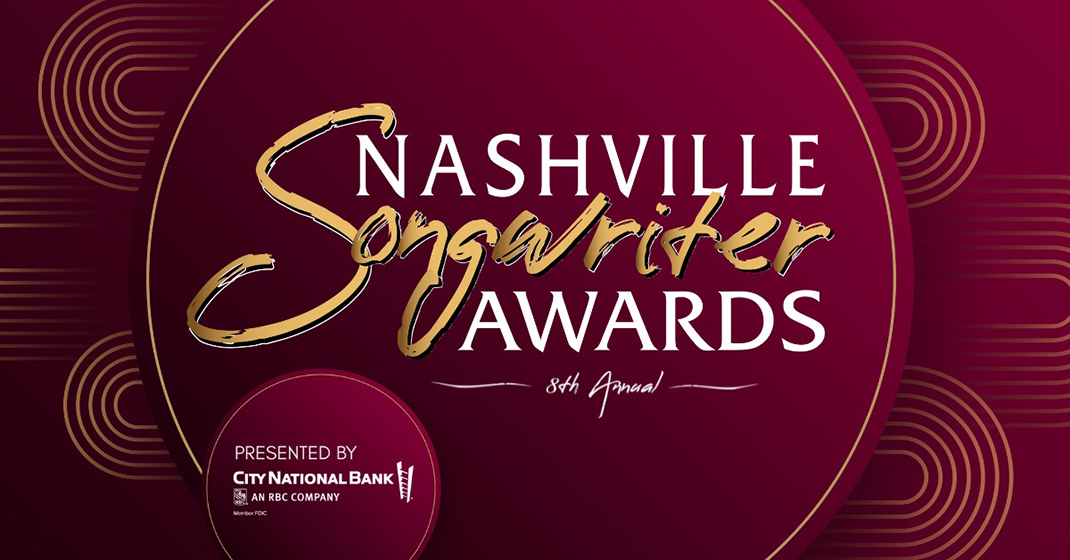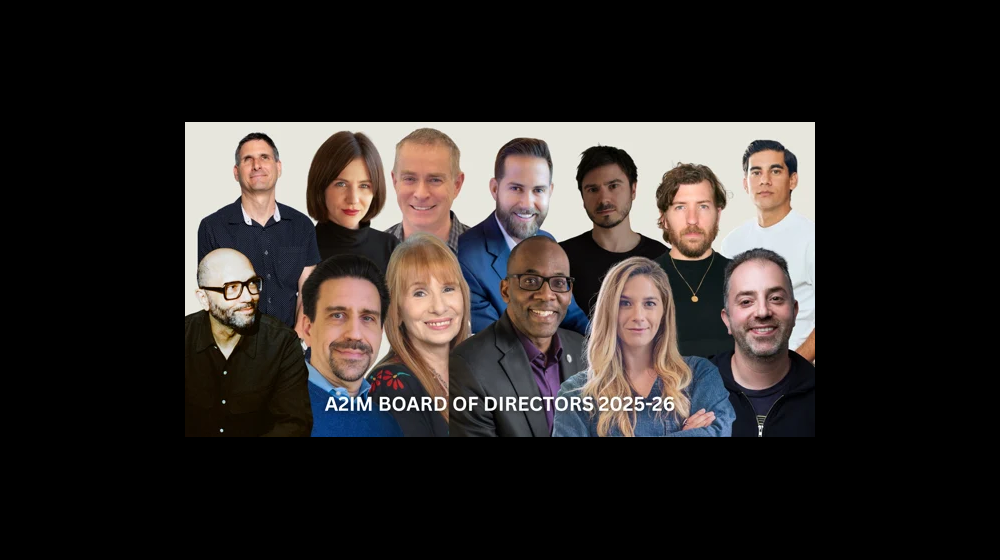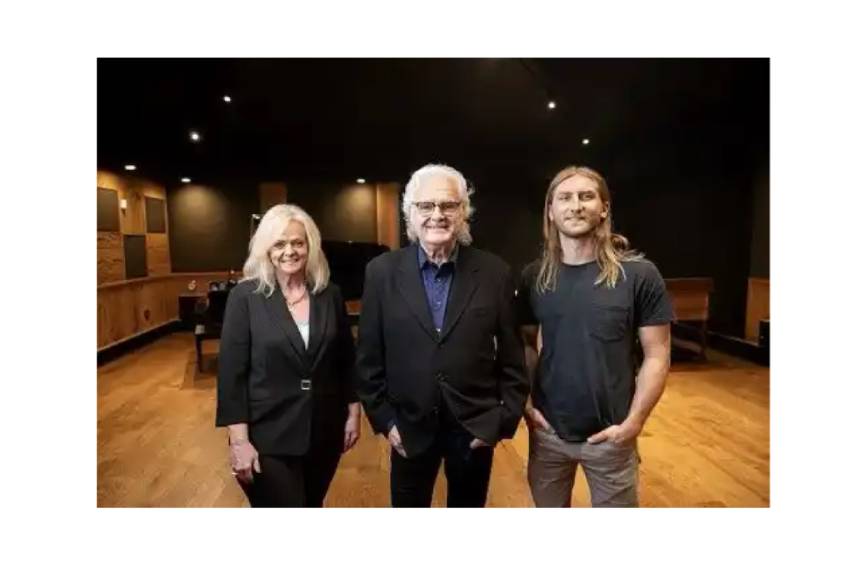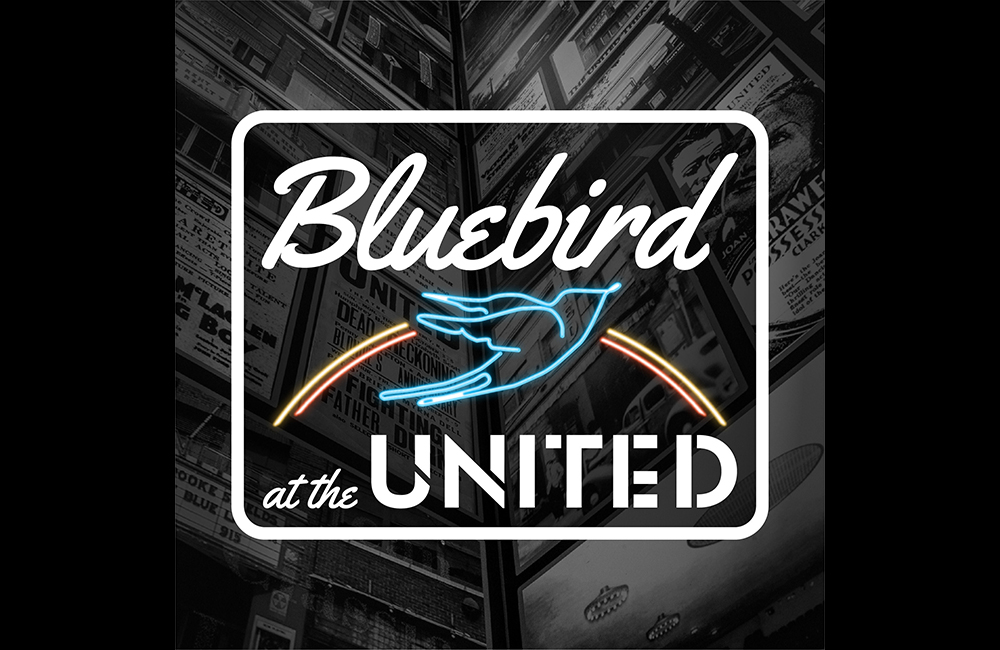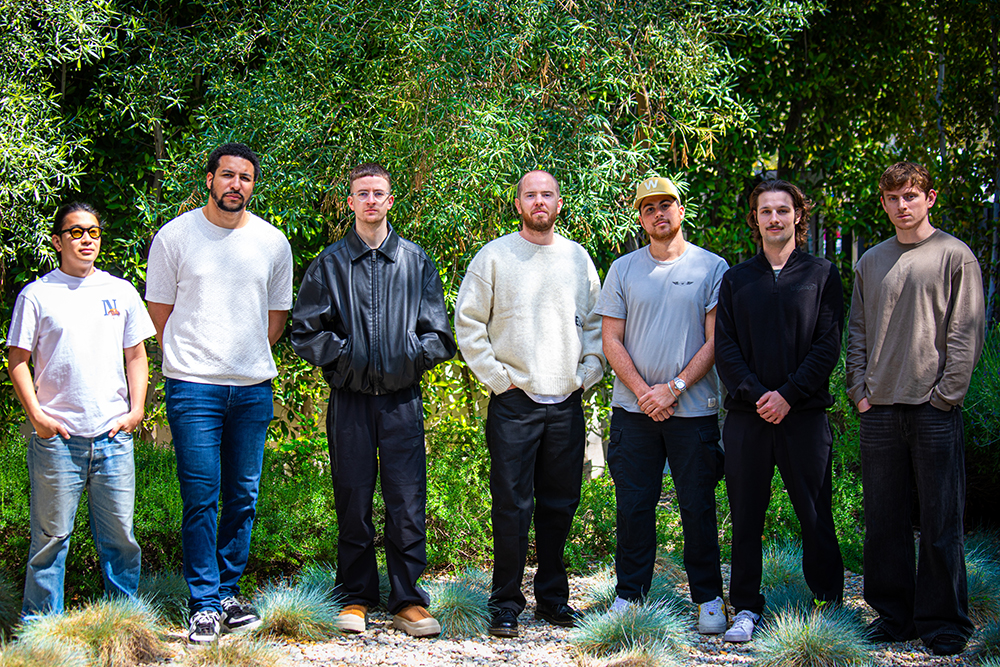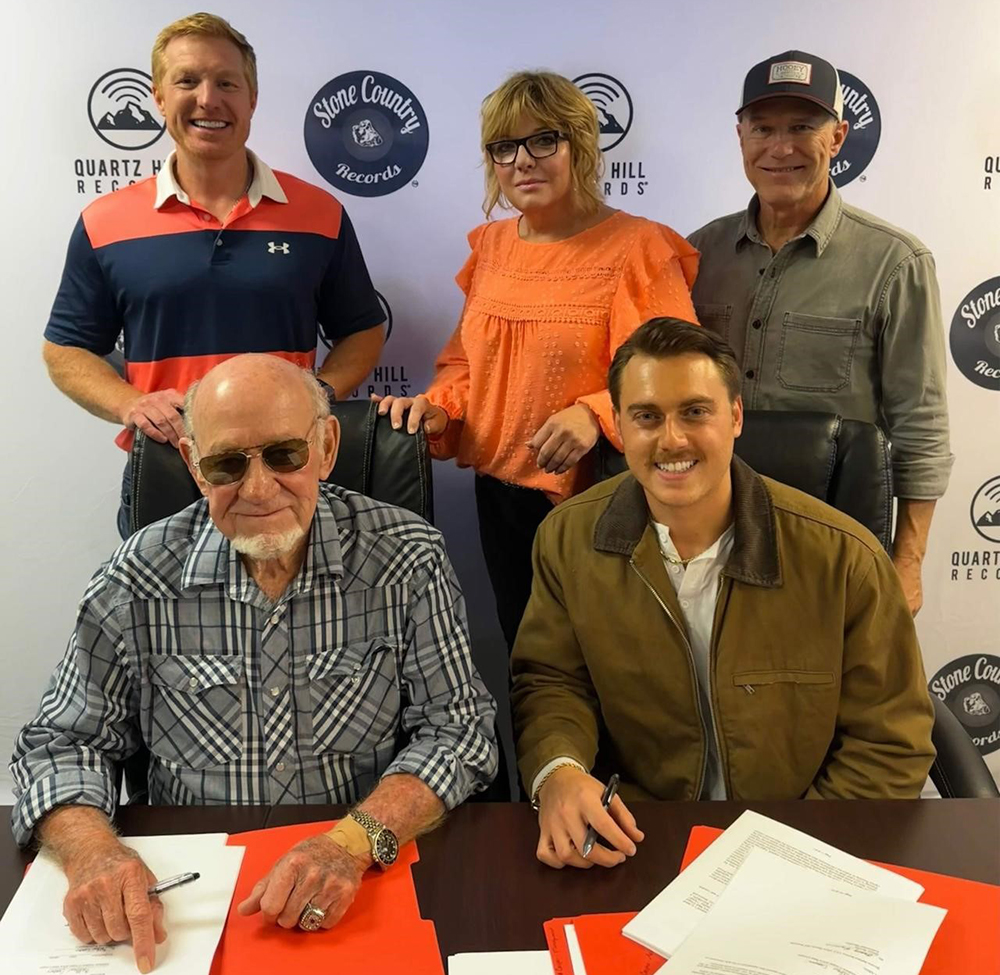
He's pissed that I'm constantly bashing major labels. He wanted our conversation to be off the record, but I felt that would undermine the reason for him calling, which was to get his perspective on the record, so here it is.
Warner is not in the business of domination. It's about signing a few good acts and building their careers. Lyor says to look at their release schedule. It's not overpopulated.
As for signing those acts, Lyor doesn't believe in bidding wars. If you invite him to a showcase and there's another label there, he walks right out. He sees no upside in overpaying for acts.
Meanwhile, when he got to Warner, he constantly heard the refrain that it was "too early" to sign an act. He scrapped that philosophy, he believes it's never too early. His mantra is sign and develop. So at Warner build it and we will come is not the driving principle, sure they want to help already established artists get bigger, but they're primarily interested in finding raw, undeveloped talent, without all the traction to ignite a bidding war, that wants to go into partnership on the road to success.
Speaking of partnerships… 70% of Warner acts now have 360 deals. Lyor stressed how difficult this was to achieve, with its competitors only interested in recording rights. Warner's reinventing the wheel.
Lyor stressed that before the CD explosion 360 deals were de rigueur, that Warner is returning to what once was. He believes 360 deals are good because the label is thinking about the act every day of the year, this is good for their careers.
I brought up the concept of a fair deal, of compensation for the act. I tossed around the concept of 50% of the net going to the act. Lyor agreed in principle, without committing to that specific number.
I also brought up the concept of transparency. Lyor said Warner was developing an app that acts could pull up on their phones that would display everything going on, from streams to airplay to… But he stressed that sometimes it's harder to change what was than build from scratch, it's taking longer than he'd hoped, but it's coming.
Of course I brought up the concept of compensation. That it looked ugly that he and others at the company were being paid so much when the company was losing money.
Lyor said the company was not losing money.
And he said some of the acts were making tons.
I told him he needed to get this story out.
Lyor said he wants to develop great music that benefits society, that's Warner's goal. As for my comment that Steve Jobs only gets a dollar in salary and shares in the upside…Lyor didn't specifically respond to this. Although he did say he'd been in the business for thirty years, had slept on floors and believed he earned his compensation and that you need skilled, experienced people to shepherd a company into the future.
Lyor Cohen is a force of nature. His style is a bit different from Steve Jobs's. Steve is all about the reality distortion field, charismatically taking you into his own universe and convincing you. Lyor is more in your face. But his will is just as strong.
I told him I have no investment in the major label dying. That I had two goals, one of which has now been achieved.
Yes, one goal was all the music to all the people at a low price. That's what Spotify delivers.
The other is great music created by people who are fairly compensated. Lyor said he agreed with this. I didn't bring up the concept of creating it without interference, I spaced that, so I don't have his response thereto.
If Warner Music can achieve this, more power to it.
One does have to admit Warner is a leader in the new world. It derives more of its revenue from digital, it's the aforementioned leader in 360, it did not sign on to the money-losing Vevo… But will this be enough? Does Lyor see enough of the new world to transition from the old? Time will tell, although he's convinced me he's trying, that he's remade the company and is less concerned with the past than the future.
As for his competitors…
It's hard not to beat up Sony. Doug Morris is old school. Sure, a company is nothing without hits. But a hit ain't what it used to be. EMI is about to be sold and Universal is in upheaval, we've yet to see Lucian Grainge's complete philosophy, never mind the lean, mean team he uses to execute it. But Grainge comes from the hit-driven UK, whereas the US is depleted and depressed, there's not a dominant radio format, people don't follow music like the horse races as they do in the UK. Does Lucian truly understand America?
Time will tell.
But we do know the majors' dominance came as a result of control of distribution, which they've lost, anybody can get on iTunes and Spotify. And sure, radio airplay still sells the most records, but radio is fragmented and losing power, so majors' dominance of this market is less important as time goes on. And then comes the money. You couldn't do it alone, you needed the major wallet. That's no longer true, you can do it yourself if you want to.
So the majors no longer control the market. The historical foot-dragging and demonizing of its customer base has put it further behind in the future world. It's kind of like BlackBerry, thinking that e-mail is all that counts, not foreseeing the app world. But that does not mean a company can't turn around.
Right now, Warner is at the forefront of the major game. We do need entities to develop and promote music. The majors had a head start. Sony has squandered this advantage, Universal is a question mark. Will Warner win in the future?
Like Lyor said, Warner isn't in the domination game. Warner's winning does not mean no one else can. Can Lyor figure out a way to survive and be profitable? He's trying. And I can't say one thing he told me on the phone was categorically incorrect.
But that does not mean Warner cannot have competitors. And that they cannot be brand new. That's your challenge.
RE: Lyor
When I was on the phone with Lyor I told him that negative feedback comes with the territory, every day people tell me I'm a shithead, that's what happens when you raise your head above the fray, especially when you're handsomely compensated.
My original intention was not to print replies. But I got many questioning Lyor's statement that 360 deals used to be de rigueur. I believe he was speaking of his days at Def Jam, and one can make a case all-encompassing deals were prevalent in the early days of recorded music, but I wanted to set the record straight that during the heyday of classic rock, from the sixties until just recently, 360 deals were a rarity at the major label. I assumed most people knew this history and therefore I didn't expand upon the topic in my original report, but now I realize history fades in the rearview mirror and many people just weren't around back then.
So…
I'm gonna print a bunch of feedback.
Lyor's well-paid, he can take it.
I know, I make bupkes and people tell me I'm an idiot every damn day.
Reader Replies
Please note that these are the unvarnished opinions of Bob's readers and may, at times, be a bit frank.
The clarity of royalties is an enormous issue. The majors say they are constructing transparency for artists. UMPG was the first. They have a site you can visit and see your royalties. The scam is, the royalties have already been sieved through the UMPG royalty accounting system. You're not seeing what has been raped off the top.
Here's a little more I know. UMPG copyrights all of its material whether sub-published or administered in its name worldwide. Ask the biggest writer or Company at UMPG to get their society information from SACEM or GEMA, they will be refused. If you have material in their catalog and you want to get your statement from the performance and mechanical societies you can't. You are not the owner, UMPG is. NBC-Universal cannot get its royalty information from source. These people are disgusting.
I can give you so much info on publishing thievery you would spin.
_____ ______, _____ _______, _______ _________, all thieves, I wish Eliot Spitzer hadn't been caught fucking that chick. I was planning on going to him with this info.
_____ _______'s mantra is "always deduct $40,000 from a small writer or small publisher because that's what it costs to start a lawsuit."
At UMPG it can take up to 31 months to get your royalties from Germany. All foreign royalties go back to their U.K. office first, the fee is deducted and the royalties are held for the next pay period plus 60 or 90 days. Then they are sent to the U.S. where they are held another 60 or 90 days after the next payment period is due.
There is some good information in the notes and some incorrect information from the personal statements, the anger is more than justified. The movie business started in the U.S. The film studios owned the theatres and the publishing companies. The studios determined it made no sense for them to pay performance royalties from films and music they owned and played to audiences to their writers if they weren't forced to. In Europe, it was different. The societies were paying all writers and publishers for public performances of music from films and sending checks to all writers and publishers including the U.S. But the other countries got no reciprocity from the U.S. The other countries have been and remained totally pissed off. The black box, which is cloaked as somewhat of a mystery has a simple explanation. It one of many manipulations devised to balance the fucking the foreigners were getting from the U.S. Side note, the worldwide societies pay out 11 billion dollars annually. Have you ever heard of "broadcast mechanicals"? It only occurs in Europe and is another retaliatory move to balance the scale for no U.S. theatrical performances.
Deep Throat
————————————————————————————
Hi Bob
Lyor Cohen says that prior to the CD explosion Warner made 360 degree deals de rigeur. That's got to be complete rubbish. CDs exploded in 1985. Some of the artists already signed to Warner at that time were – Prince, Chicago, Madonna, ZZ Top, Van Halen, Eric Clapton, Dire Straits, and Paul Simon. As I said in my Huff Post piece last week, "Major record companies are dull, deaf, greedy, blind, stupid, grasping and dishonest." But the managers who looked after those acts weren't. I don't believe any of them would have allowed Warner to take one single cent from any of their artist's gigs.
Cheers
Simon Napier-Bell
————————————————————————————
Bob..You said "Can Lyor figure out a way to survive and be profitable? He's trying. And I can't say one thing he told me on the phone was categorically incorrect."
Here's something so incorrect you said he said , that made me laugh out loud:
"Lyor stressed that before the CD explosion 360 deals were de rigueur, that Warner is returning to what once was"
Say what ?? ;-).
Bob I'm 66 and I've had a lot of record deals and NOBODY (artists) in the old days had even heard of a , "360 deal". What he said is just flat untrue.
Best,
Bob Welch
————————————————————————————
He can talk all he wants about his "altruistic " perspective. The fact of the matter is the shareholders lost over 70% of their value when the company went public while he and a handful of people at the top made millions. And the company is a shadow of its former self despite his overt claims about their digital business. If cds had a future he'd still be doing it. That's the difference between him and steve jobs
Don't use my name if you want to print
One more thing. The company IS LOSING money no matter what he says.
————————————————————————————
Well, actually he does believe in getting 360 rights. The problem is that they really don't operate like a 360 company any more than any of the rest of them. They operate like a record company that syphons money from other sources. If they actually used the concept that they share in other income streams to validate an investment in the act or in general artist development, then I might be OK with them. But they still just look at the P&L on the records and operate off that.
————————————————————————————
Hey Bob,
I'm managing an act that recently signed to Warner and are putting out their first record. For the most part, what Lyor is saying is true. From the jump they've taken a very long term approach with the act. Most conversations are not about creating a 'hit', but rather about creating a career.
Like any new relationship, we've had our growing pains. There's still a few systems there and a few blocks in place that tend to frustrate a young / tech savvy act, but for the most part I do get the impression that they are trying to break down some of the barriers between artist and fan that traditionally 'the majors' have gotten credit for erecting in the first place. They are still a large company, and as anyone knows it is a bit more difficult to enact change with larger groups of people. (What's the number gladwell gives? Greater than 150 employees and you lose a certain ability to enact change terribly smoothly?). More often than not though, when we fight with Warner to get something we feel strongly about for the artist, they are willing to compromise. I hope that continues with the new ownership.
If i'm to take your opening line verbatim though… i think Lyor is calling you upset about he wrong thing. He shouldn't be upset about you bashing major labels. He should be upset that he's grouped in with the rest of them.
IMO, there's no relevance to the term anymore. Market share is far more spread out now at the bottom (once you get past Universal and Sony). Some of them are publicly traded now, and some are privately held. XL, who one would think of as stridenly "indie", has artists topping pop charts.
The term 'major label' seems like an oversimplification these days. I ask this question regularly of people in our industry: "What is the characteristic that defines a label as a 'major' these days?".
Nobody seems to have an answer.
And Lyor has a right to be frustrated if he's going to have to answer for the actions of Sony, EMI and Universal even though he has little control over their practices. Though the average music fan knows very little about the innerworkings of the industry, they do know the term 'major label' and that they're not supposed to like those evildoers.
By continuing to group them as majors, you take away some of the value each might have in making important individualistic changes that help the health of their artists or even the industry at large. It's tough to sell change to your troops when you're just going to be demonized by the public anyhow.
-Justin Spindler
————————————————————————————
If you post this please withhold my name. I never understood unless you really had no other choice why an artist would sign a 360 deal with a label when the label doesn't really have the skill set to execute on the other rights. Why would I want to give a label a piece of my touring as an artist when they have no booking agent/expertise in the space.
On the flip side if your a label why not have people with these skills in house. If you own a piece of your acts touring why do you want a 3rd party booking agent taking ten percent off the table. Wouldn't it make more sense to have employees within the company that could execute in these areas. For years it seems labels neglected "the road" when the label biz was a gold mine and I think that has come back to haunt them. The labels had all this access to the best talent but were too narrow minded to diversify into other areas touring in particular (Sure they own a few concert promotion companies oversees but they primarily function as glorified a@r team.)The crazy part is they still after all these years don't seem to get it as their focus is still so centered around figuring out how to monetize recording rights that clearly will never go back to where it was instead of figuring out how using their artist relationships to find new revenue streams.
————————————————————————————
You're right about being a force of nature. Lyor is the last of a dying breed who absolutely paid his dues — whether carrying record crates for Run-DMC or sleeping on floors. I know because I slept on some of those same floors with him when i worked for him in my previous life. He has always had the same level of intense passion for the music, the artists, his staff, and his label — that too often mistakenly comes across as Israeli arrogance or aggression. A passion I would argue none of the old guard still around ever had. His passion single-handily saved Def Jam from its early 90s decline and it might just save WMG. Although I'm still not sold on need for the majors anymore. Lyor's convictions are those of a guy who was raised at a scrappy label that had to prove it's worth and contribution to American culture every day. Sounds like he's still got that mindset going for him.
Gerard Babitts
————————————————————————————
I can't remember one single "raw" act developed under the Lyor Cohen regime… Should I be taking some medication for my memory??
Cheers,
Beni Borja
————————————————————————————
"Some of the acts are making tons" of money.
Oh yeah? Which ones????
Wendy Day
Rap Coalition
————————————————————————————
Just the fact that he was hip to your opinions and willing to counter them with proactive answers gives him a lot of points in my book. If he can put his money where his mouth is on a few of these pending ideas Warner just might make it out of this as a good guy.
Kristina Armendaris
————————————————————————————
That is the LOL statement of the year!! He's going to walk out if another label is there? Who the f**k is he going to sign then? Any artist that is good and can get to the point where they can "showcase" for major "entities" is going to have multiple interested parties perioid! Can you name me one act that Warner has developed in the last 3 years? I can't name one off the top of my head. I'm not sure what Warner does now.. It seems like they promote and market established "big" acts and maybe here or there they'll have some success at radio with a new artist. Independent labels or arms of major labels are leaps and bounds better than majors for developing artists.
Cheers
-Joe Schricker
ps… I have a chip on my shoulder about Lyor because when he was @ Island circa 2001-2002 his A&R department offered a band I was working with a record deal. Then right before we were going to sign and finalize the deal he decided he wanted to see the band in person. So he flew the guys up to Seattle and we showcased for them. I had other labels interested at the time but we told them to fuck off because we felt Island was the right fit for the band and they pulled the trigger first. After we showcased for Island he told our lawyer there wasn't enough "heat" on the band to sign them and he pulled the deal. Lyor's about money and business in my opinion that's awesome but c'mon you're not about artist development.
————————————————————————————
360 deals are tantamount to pay-for-play scams at clubs. If you're not an artist and yet you still, somehow, believe you deserve to make money off their backs, then you have to do what artists do: take a risk. When I was in the nightclub business, I never took a dime off the door. The artists got it all. My thinking was, and is, that people can go anywhere and drink. If I want a particular group of people to come to my club and drink, I have to hire the people who can get them there. Similarly, if record companies want authentic, edgy new talent, then they have to take risks. They have to keep their hands off all aspects of artists' performances, and I mean all aspects, from staging to set lists to gross receipts. These so-called "music moguls" who spend their time holed up offices making deals have no idea what it takes to be an artist, and most of them wouldn't recognize art if it ripped off their arms and painted Guernica with the bloody stumps.
Ray Staar
————————————————————————————
I've heard WBR staff saying for the past couple of years "we are going to do 360 deals….or actually, 365 deals. that means we'll be working on an artist 365 days of the year. it's better for them." it's not. the labels want to make money on every aspect of an artist nowadays. the problem is, they don't end up investing in merchandise and touring, the way they should be, to deserve the spoils of a 360 (365) deal. He doesn't need to be in charge over there. 30 years is plenty. Changing of the guard. Don't get soft on him now Bob, just because he called you to talk. They are all salesmen, and can make any bullshit they're selling sound pretty compelling.
Jimmy Cantillon
————————————————————————————
Bob,
I found this post very informative. Good for Warner.
Peter Scheffler
————————————————————————————
Dear Bob:
A lot of good thoughts from Lyor. I have a lot of respect for a guy who has spent 30 years in the industry, which means he probably has logged his 10,000 hours. However I think his statement (if you quoted him correctly) that he walks out of a showcase if he sees another label there – – does not make sense. How many great acts have in their "inside The Music" story being turned down by 30+ labels before someone took a chance. I know one personally about Slipknot and their manager Steve Richards. He found them and took them to his label Epic and was turned down, Roadrunner saw something that Epic did not and the rest is history. My thought, Lyor sit and listen to "everything" and then worry about "overpaying" for an act you believe in.
Bud Becker
————————————————————————————
Hahaha I hope that "walks right out of a showcase" line was hyperbole. I'd "walk right out" of a company whose executive did that. So wrong on so many levels: firstly because if you don't stay, you have no chance of getting the act. Maybe there's no bidding war. Maybe you convince the band to sign with you on the strength of your team. Maybe they decided they like you best regardless of the other offers. I am laughing at you, Lyor, if that's what you do in real life. I am laughing at you and pitying all your employees who you obviously have no faith in and who are limited by your foolishness. Secondly, have you never heard of competitive analysis? Does being an educated leader mean nothing to you? I could go on but I'm too busy laughing at you, Lyor, and also at your silly belief that just because you've "earned" your salary by sleeping on floors, you are making a good decision for anyone (including yourself in the long run) by taking it.
Ooooh boy, that was great, I needed a laugh today. Thanks Bob, thanks Lyor.
Lizy Freudmann
————————————————————————————
What a crock of shit. Warner's 360 deals are nothing more than them playing cashier.
You want to use an artitst's logo? Sign the licensing agreement and pay. Any third party licensing agent can do that – and do it better.
The company is so gutted, there's hardly anyone there who can still relate to the acts.
How many can name a Neil Young, Grateful Dead or Jackson Browne song? Not many.
Like most of the majors, Warners got rid of anyone with knowledge and experience and replaced them with the young and the stupid – at a much smaller salary. The record labels' dirty little secret is that age discrimination runs rampant.
But back to those 360 deals. The artists would be better off placing merch deals under the control of parties who would pro-actively seek to exploit them (assuming that's what the acts want). It ain't gonna happen at Warners. How does one develop a plan for an artist's brand if one doesn't know the artist is all about? At one time Warners had some of the greatest artists ever recorded. And yes, they "developed" a lot of them internally with the help of great caretakers. But those caretakers have all been shown the door – years ago. All that remains are bar codes and ISRC codes.
When these acts wake up and realize what's happening, it'll be too late. If they thought the accounting for CDs was flawed, just wait until the statements for those 360 deals arrive.
-PLEASE WITHOLD MY NAME.
————————————————————————————
"Sign and Develop."
must mean
"Fuck Everyone w/ 360 deals- then throw musical spaghetti at my vast wall of pop consumerism and see what sticks."
In his language.
Alex Dunlap
————————————————————————————
I worked at a company (an indie that no longer exists) that made a lot of 360 deals. I drank the Kool-Aid at the time and convinced myself that they were the best possible scenario for all involved. The act, the label, the manager, the agent, the publisher & the merch company all equally incentivized. But it's just not the case. Ultimately, the artist, regardless of the royalty rate, takes it in the ass. And the label, regardless of how invested they may be, are really only good at one thing: selling records. A label is not a merch company or a publisher or an agent or a manager. And while they may be connected to all of those players, At the end of the day, their staff is best at promoting and selling records.
The whole notion that a label is owed money because they funded the project and can't make a decent ROI is flawed. And certainly not the fault of the artist. The labels built this system that no longer works. It is not the artist's responsibility to fix it. In the 360 model the artist is the one that has to give up his/her/their share of publishing, touring, management, merch and record sales. The label isn't sacrificing their share to participate. Isn't the term "passive participation"? I.E participating actively in profit sharing while passively contributing.
I don't doubt that Lyor wanst to redesign the very culture of WB. Or that he may be qualified to do so. But this idea that the labels should be owed money from areas they're not experts in is ridiculous at best and extortion at worst.
David Wallace
————————————————————————————
Oh shit you slept on floors fuck me that has to be worth a million…..you've been in the business for many years damn sorry I forgot that should be worth what…a million a decade? Oh right…You earned your compensation??
How about the 80% of the employees that have been laid off in the last 10 years…..? Wonder if any of them slept on floors…wonder if any of them had years in the business and years of experience…..hmmm…where the fuck is their compensation Lyor?
I slept on floors..Bands slept on my floor. I worked at a label for 15 years. Where the fuck is my compensation?
What the fuck! You are entitled to your compensation why am I not entitled???? Your passion for music and the business is somehow greater than mine? Fuck You…
This just illustrates your point Bob…There is a complete disconnect here. This is Me…Me…Me and fuck everyone else. He's not the only asshole though….This is not just a music business problem. This is an America problem. And this is why these compensation packages disgust most of us. Is this entitlement…..
Please withhold my name if you use this.
————————————————————————————
"As for my comment that Steve Jobs only gets a dollar in salary and shares in the upside…Lyor didn't specifically respond to this. Although he did say he'd been in the business for thirty years, had slept on floors and believed he earned his compensation and that you need skilled, experienced people to shepherd a company into the future."
Yeah. Well. Fine. But until the brass is willing to lay it on the line, which, as you point out, there is most definitely precedent for, the whole thing rings hollow.
Good for you, former floor-sleeper. Entitles you to exactly nothing in the new economy, where everyone makes their damn bones every ding-dong day. Asshole.
(Sorry. I'm kind of grouchy, what with this evening's most recent reminder of all the power tools who've run things into the ground.)
Colleen Wainwright
————————————————————————————
Is that true that there used to be 360 deals and then they stopped? Are you familiar with any such deals before the current era? I never heard of them back in the pre-CD days and I've been writing about/following music since the 70s. Why would labels stop doing such lucrative deals? Isn't it odd that labels would give up a revenue stream for any reason? Doesn't the suggestion that if an act gives up all these potential revenue streams to the label, the label will be more diligent in thinking about the act's best interests sound a lot like the idea bandied around in the 70s and 80s that if you let the label pick your single/choose your producer/remake your image etc, then they would have more invested in the act's career and would work harder on their behalf? How did that usually work out? Isn't it possible he only wants young, raw – and naive — acts who haven't managed to get themselves very far down the road to success because those acts are the ones most likely to eagerly give everything away in return for being promised the moon — since they don't have anything anyway? Isn't it possible that an act that has already created a buzz — an act Cohen doesn't want because he wants to "go into partnership" with the band as far as shaping who they are — might be aware that the record label isn't doing enough work for the band to justify taking so much of its potential earnings?
anastasjoy
————————————————————————————
The one statement that jumped off the page was:
As for signing those acts, Lyor doesn't believe in bidding wars. If you invite him to a showcase and there's another label there, he walks right out. He sees no upside in overpaying for acts.
I read this statement a few times, each time trying to hear it, so I dont think Lyor is a schmuck, but each time I read it, I think:
If I was in a band, playing for years, getting good enough to gain the attention of more than one person or music company, what would I do?
I played hundreds of shows, record and self release music that people like, sent out hundreds of packages, emailed hundreds of links and info to record labels, publishers, promoters, music supervisors, recording studios, producers, clubs, venues, managers and anyone I can think of, that has a history of success and can actually help sell my music.
And music business folks, big and small, local, regional and national, actually start coming to my shows and showcases.
But they cant come to any Lyor is at?
There are many types of labels, studios and/or producers that have deals, so is it just majors labels, or all labels and does include studios, producers, TV, movie, video game, internet, Walmart, Best Buy, Target, All Big Box Stores, Live Nation, AEG, Red Bull or any other company that goes into the label type business?
If a few label people are planning on attending a showcase, they respond first and Lyor responds later, do I uninvite the people who committed first, or do I have to do a showcase for just Lyor, a private concert for Lyor?
Am I just misunderstanding the terminology? I have been to hundreds of showcases. Many in clubs, rehearsal spaces, and warehouses, etc. some invite only and the main goal or point of these is to get as many label people and music industry people as possible. I have been to showcases where all 100 attendees could be considered label people.
And I have been to hundreds of showcases at venues, with or without other bands, sometimes at the beginning of a tour and often most of the people paid, but with a huge guest list of music industry people and I have been to many other versions of what people call a showcase.
If Lyor comes to a showcase and sees another label person, but they were working for the sound company, or were dropping off something to someone that was working, do I have to write a note, get it notarized and bring it to him, so I can get him to come to another showcase, a private Lyor only showcase with no possibility of other Labels interfering?
I get the point, you dont want competition, you dont want to look bad, or like you lost to a competitor, you dont want to go and see bands very often, you think your time is worth more than everyone else, you want to make money from everything I earn, weather or not you had anything to do with earning that income, you want to sign me for life, you want me to worry about not being offered a deal with Warner, because another Label person is at the same showcase and you want me to understand and agree to this.
That's what ———- ———- used to tell the acts he was considering signing, when he ran ———— Records and I always thought that was completely fucked and abusive.
He told the acts that he wanted to know that they were not talking to anyone else and he would retract his offer if they were or if is he saw other record label people at their gigs.
I know a few acts that ———- ———- told this too and it made them extremely nervous and uncomfortable and one of the acts he told this to, signed with ———— and hated every second of dealing with ———- and being on ————.
So an act spends many years, trying to get these people to talk and listen to them, and they finally start to talk to you, listen to your music and come to your shows, but you have to put that all on hold, because Lyor enters the picture?
Competition is always good for the acts and fans and is always good for the end product or art.
When I start a project, I always get at least 3 bids for everything and chose the company that has the best service, pricing, who understands me and my project the best and who promises to take care of me and this will not happen if there is no one else bidding.
And if you get 3 bids for a tour bus and you chose the one that you think is the best, and it isn't, then you turn the bus in and get another.
But if you don't get competing bids for a record deal, because Lyor would be upset and you sign a 360 deal with Warners and Warners does not do a good job, you are completely fucked, as you can not go to another label and Warners can sit on your project for years, without doing anything and there is nothing you can do about it. They have hundreds of acts to play with and you have only one career.
And Lyor believes 360 deals are good “because the label is thinking about the act every day of the year, this is good for their careers.â€
No label has or will ever think about you every day of every year, no matter what kind of deal you sign. Most likely, the people who signed you at the label, the marketing, PR, distribution, A&R people you met with, will not be there when your first record is released and if you are lucky enough to release a second record, you will be dealing with a whole new group of people and probably a new president and/or regime and they will probably have new goals and be signing a different style of music.
Lyor sounds like just another overpaid major label executive with a major label point of view, who is out of touch with the reality of most acts and cares only about himself and his point of view, as no working musician that I know will agree with what he has told you.
My thoughts for the day
Tom Bunch
TAB Management
————————————————————————————
Bob,
Bullshit. Tell us everything that was said. You get bullied when the industry guys "come a knocking' ". Stay strong and know 90% of your subscribers support you and your opinions, even if they ask their names to be removed because they are in the in the 10% of cowards like me.
I love you but don't use my name.
______________________________________
Bob,
I noticed around 18 months ago that there were NO digital earnings on ANY of my royalty statements from EMI/Capitol, granted the sales had dwindled and the (3) records I am speaking of were done between '89-'96 before downloads and streaming were the norm but they did have a considerable amount of sales during their heyday. Other companies such as Warners and Sony had added digital earnings to my statements automatically. I sent emails and called the EMI/Capitol royalty department consistently during that 18 month period. I was told that the company neglected to add digital earnings to my contracts. I was finally informed in February of this year that the digital earnings had been added to my statement. This past July I finally received a statement for ONE of these records that included digital earning, but only retroactive back to 2009. There was a substantial payment amount but I am still asking "what about before 2009" and what about these other 2 LP's I have been inquiring about! I no longer use an accounting firm and I'm sure that if I did that this exclusion of digital earnings would have NEVER been noticed! I would like to mention that the royalty department NEVER returns my calls or emails and it's only when I get a representative live on the line that I accomplish anything!
Artists-producers beware! Check your statements carefully! DIY Baby!
Bob….if you mention this in your letter…please withhold my name since I am still dealing…….thanks…..
______________________________________
Also anonymously:
When it comes to unabated thieves, lets not leave out Wolfgang's Vault.
They bought Bill Graham's belongings after he died. Included were many concert tapes that were originally intended to be played on the radio ONCE and discarded. That's what it said on the contracts we all signed 'way back then'. Wolfgang's Vault decided they could just put them out whether you liked it or not.
My favorite part was they sent you a really lopsided contract in their favor for each show, In the fine print it said that if this contract was signed by you, they had the right to apply it to ALL the other concerts they 'owned' by you. I quickly wrote them back and told them I would NEVER sign that contract. They said okay fine and then put my concert up for sale ANYWAY and just keep ALL the royalties for themselves. It is a concert I would never have approved for release to the public. If it was bootlegged off the radio back then, it probably wouldn't have bothered me.
Anyone that buys anything from them is supporting their abuse of the law and their colossal fucking nerve.
______________________________________
Hi Bob,
There is no question that record companies and the greed of their corporate leaders deserve the majority of the blame for their terrible reputation and the severe downturn in their fortunes. And when someone really examines what happen with an unprejudiced eye, I'm certain they will trace the downfall of the business to the late 1960s when Wall Street began its inexorable march toward taking over the American music industry.
In the interest of balance, however, I feel compelled to provide a snapshot of the other side of the coin here. Not every record company story is tale of woe, filled with creative accounting and the exploitation of musicians and producers. Take my story for an example.
I joined the A&R staff of Epic records, then owned by the CBS Corporation, in the summer of 1976, and I worked for the company until it was sold to the Sony Corporation in the 1980s, when I took the offered parachute and went independent again. I rose to the position of Vice-President of A&R, West Coast, and every day I worked there was an adventure. I wouldn't have traded it for anything.
Mostly, it was the people: Gregg Geller, Becky Shargo (now Becky Winding), and Larry Hamby were the three I worked most closely with, but everyone at the company was great, and I remain friends with most of them. I had the privilege of interacting with some legendary record people – Bruce Lundvall, Ron Alexenburg, Steve Popovich and many others, way too numerous to mention. I also had the great fortune to produce some wonderful artists – Boston, Charlie Daniels, Michael Murphey, Angel City, and quite a few others. In addition, I participated in soundtrack projects such as "Urban Cowboy" and "Footloose."
And while I'm sure there was some financial bullshit going on, it wasn't happening to me. I was very well paid. Not only did I receive a very competitive salary, but I received full royalties on anything I produced, and I still get royalty checks to this day. My business manager, who scrupulously examines my statements, has never found a discrepancy. I also had a generous expense account and the freedom to follow my instincts and take a chance on unknown artists, some of which did not pan out very well. No matter – the company stayed with me. No doubt, the fact that I was lucky enough to have some hits was a factor in all this, but that would be true in any company environment. In addition to the work I did for CBS, the company was also generous enough to recognize that I had been a fairly active independent producer before I worked there, and they gave me permission to produce one artist outside Epic every year I was there. I used this permission to work with both Little River Band and Quarterflash. I still get my full royalties on those projects as well.
The parachute I got when I left was unbelievably great, and when I turned 65, I received a huge check for my full pension.
I have no idea whether my story is atypical or not, but it is true, and should be considered in the final judgement.
Best,
John Boylan
______________________________________
ASCAP, with its motto that it is the protector of the writer, whereas bmi protects the broadcasters, is as guilty as anyone of defrauding writers.
Firstly, they developed and copywrote a system that allows them to track any song played digitally. Yet they still pay the writer on a "survey" of any given region of the country during a certain time period. When you ask them why not pay us per play, they say their units pay out too highly so they couldn't afford to do that. Huh? Why not just lower what each play is worth and pay everyone for exactly how often their songs are getting played.
Secondly, they are notorious for paying "matching funds" to writers, under the guise of "advances" to keep writers from bolting to BMI. Now we all know this is standard practice so why mention this? Because under their agreement with the justice department they are not allowed to give matching funds, as they are not allowed to compete as if they were a private business. So they give writers advances with a wink, saying don't worry, these are matching funds, we won't ask you for this money back.
But then, sometimes they give out too many advances and their accountants wave a flag and say we have to start recouping on writers or we'll get busted by the justice department. So they start collecting on the writers matching funds, often years after they've been given them. I'm sure those writers would have bolted to BMI if they knew that was coming down the track.
I know a number of writers who have co-written on a song, are all ASCAP members and yet they were paid different amounts on the song. I'm not referring to one of the writers being BMI and one ASCAP. Im referring to them all being ASCAP.
You can't audit them. There's no transparency.
I could go on and on. Although they do so much to help writers otherwise, their financial department is scamming the writers. They're as bad as anyone else
Name withheld
______________________________________
Bob-
I managed a band signed to Columbia Records that released its debut album in 2004. The album had a 2+ year cycle- and sold over 1.3 million copies– a large majority of which were actual cds not downloads- and spawned the most played rock song of the year for 2005- which last time I checked was still the longest charting single in active and modern rock radio history ( 65 weeks and 42 weeks in the top 20 respectively). The album ended up having 3 #1 active rock and 3 top 10 alternative rock radio singles.
for 1.3 MILLION record sales- we received $14.500 ( I think the exact total was $14,345.00) in royalties. 1.3 million x $7.00 appx per disc to retail = $9,100,000 of income ( appx ) on the album- and we received less than $15,000.00.
we spent a LOT of money on a forensic accountant- $40,000 that we earned touring-but the label had a receipt for every single penny of the deductions the claimed they spent- even though most of them were unapproved by the band—and were not the kind of deductions that could be disputed……….. monies spent on so called indie promoters in out of the way unimportant markets….. promotions we had never heard of or approved and other questionable "marketing campaigns" the label swore they actually paid for but we never saw the benefits of totaled MILLIONS of dollars.
during the accounting process we were told by someone at the label there that they thought that we- by asking them to account for where our royalties went- were "nickle and dimeing" and "were creating ill will with those who did so much to build your career that is making you a ton of money on tour and from your PRO"
I responded that we EARNED that money- just like we earned a lot more than $15,000.00 in royalties – but was given the cold shoulder by all we dealt with on this matter- and quite frankly put on the labels shit list for our next release because we had the audacity to ask why we were being screwed so royally by the label.
The next release sold appx 15% of the first release and got barely a fraction of the attention the first release did from the promotions and marketing departments. To add further insult to injury the sales department only shipped 100 cds to the bands home town for the week of its release-one of the few markets we were receiving airplay in – even though their debut had sold THOUSANDS in that market.
Less than 6 months after its release we asked for- and received- our release from the label because it was pretty obvious they were not doing anything to promote the band and quite frankly it was humiliating to have people who were HUGE fans telling us they had no idea our record has been out for months because their radio station – stations that played songs on the first album THOUSANDS OF TIMES- had yet to mention the new release or play the new singles even though all three singles from the first album were still being played.
I won't go any further into this horror story here. But every time I hear someone talk about how the major labels have unjustly earned a bad reputation for being dishonest in accounting to their acts I tell them this story….. and not one single person has continued to defend the majors after hearing it.
I will end by saying that THIS situation was one of the main reasons we no longer work together- as they thought it was me being inept instead of the system being corrupt that caused them to be so grossly underpaid.
Even though I gave some pretty big clues about who the band is out of respect to them as individuals I didn't want to mention their name – but I don't mind mentioning mine.
Thanks a lot and keep up the amazing work Bob.
Chris " Hot Rod" Long
Chris Long Mgmt
Los Angeles
______________________________________
The only label that will think about an artists everyday of every year is one the artist owns!
Thanks for 'keepin em honest'
Nona Hendryx
______________________________________
I had to join in to add this little bit most musicians would be likely to be easy to rip off, because the truth is that most of us, if given an offer something like "you can go in the studio, make records, and be in the music business" we would have probably asked "How much is it" and "can I put some of it on my dad's credit card?" because the truth is we wanted it so badly that we didn't even think of the consequences.
I am saddened when I hear all these people who got their music and talent stolen, but the revenge is to keep going and one day get to say "THEY STOLE TOO SOON"……………….. like the Stones.
Peter Noone
______________________________________
if u r @ a showcase & their r other labels there & u have a manager u more than likely suck & can hardly play urr instruments …but u will get 2 b on late nite t.v looking @ urr shoes playing urr one weak ass song…then back 2 college 2 finish urr degree & off 2 medical school or maybe u can open a subway sandwich shop….believe me what u guys r talking about has absolutely nothing 2 do w/ music…..pete anderson ….get in the van
______________________________________
Warner owns a Christian record label in Nashville, Word Entertainment, that is doing 360 right. They have an in-house booking agency as well as a merch company that services their artists. It's a great model that nobody else in town has been able to replicate.
Kyle Johnson
______________________________________
Bob – my landlord is demanding a percentage of my recording career because I have a studio and take a home/office deduction. He's calling it a "360 deal."
I believe I can negotiate that he has to wear my t-shirt at least weekly when he walks his chihuahua. I'm calling it "social marketing."
I'm a little sad that it's a chihuahua, because it kind of confuses my "branding" but I guess I should have had some foresight before I signed the contract.
Plus, I hear the latin market's on the upswing in the States.
I'll keep you updated on this legal debate from the frontier of the music industry.
Mike Errico
______________________________________
I worked in the business for 40 years on both sides of the table (artist and label). Now retired, I teach a course in Legal Issues in the Music Business at USC Law School.
As I walk my students through a basic record deal, I come back to the the same theme: every time a record label or publisher promises to do something there is a "take-away: clause that negates the thing that is promised. For example, an artist signs a one album deal. You would think this means that the company has to allow you to record an album. Yes, but,he contract will specifically say that the record company is not obligated to record that album, instead they can terminate the deal, usually by paying little money. If the album is recorded and the artist has a "release" guarantee, the contract provides that the album does not have to be released. And so it goes. Some record companies have clauses that say that no matter how great your royalty underpayment , you can't terminate claiming this underpayment is a material breach!!
This raises the one question I would like someone to raise in court (and the one I always pose to my class): is a record contract illusory? The problem is that the only people who can afford to bring this suit are so successful, their contracts are not illusory. As for the rest, a record label can effectively tie an artist up for two years and do nothing.
As for royalties, and, remembering that I've been on both sides of the issue, I never understood why royalty provisions have to be 25 pages long—and, when companies got around to transparent royalties, they still figured out ways to screw artists. Because of cutbacks, It takes three years to do an audit and when you try to settle, record companies say "We don't pay interest" meaning that after they get you to accept less than they owed, they don't think they should pay for the use of your money all those years.
While I do believe that major labels have done good things for some artists, that consistently are dismissed by your column and reader's e-mails, the fact is that the horror stories are true most of the time.
None of this was necessary. It simply got institutionalized and, like Topsy, "just growed". When I think of all the mistakes that record companies made (a two volume tome minimum), I think of the condemned man who has to dig his own grave before they put a bullet in his head and he falls in. As an old man, with no axe to grind, that's what happened to the record business; the graves are dug and everyone is waiting for the fatal shot.
And screw the publishers as well. "Swiss-Twisting" the Beatles (and everyone else), pulling off hide the salami manoeuvres in every country in the world sometimes with the help of corrupt foreign societies that operate on a supra-governmental level, honoring themselves more than Roman emperors and modern day "cult of personality" despots and, oh by the way, laziest pricks that ever drew breath except having ample time to attend extravagant dinners, usually at the writer's expense
There's a ton of reasons why all empires eventually collapse. The music business brought this all on themselves.
Respectfully,
Lance Grode
______________________________________
Please don't print my name if you use this, Bob, but let's just cut through all this nonsense. If the artists and managers were also about the music, instead of greedy in their own right for fame and the almighty dollar, they'd simply bypass the labels and do it themselves, using all the modern tools available out there, and partnering with the new companies offering more equitable revenue splits. The artists of yesteryear didn't have that option, what with the labels' distribution and information strangleholds, but the modern artist does and is therefore just as responsible for embracing change and trying to destroy the old paradigm. The know-how to do it is out there, so ignorance and laziness are no longer excuses. No artist who's really in it for the music, not the cash, and is willing to put in his/her 10,000 hours of woodshedding need sign with a major label – just the 'artists' looking for a possible fast-track to fame and fortune, and artistry be damned. This is where the idealism we harbor as music fans smacks up against the cold hard reality: no one is innocent! It's a vicious circle and that's why all the players have been deadlocked for a decade, each desperately hanging onto their scrap instead of working towards a solution. Luckily, technology will eventually FORCE a solution, and that'll be that.
______________________________________
Bob:
What I am consistently gathering from the so-called music industry reminds me of the state of the steel industry in the 70's. Responding to market forces — technology, energy, supply and demand, outside competition, etc. — they commissioned studies to see possible solutions to their plight, all the while holding concern for stock prices, as well as their own positions and power.
The most forthright solutions addressed what was known as a "Greenfields" approach: building a new plant, using the latest tech and most efficient and effective practices, directed toward a desired result, while keeping their existing factories operating and their work force fully employed. It was an expensive proposition, but, in the long term, the best solution.
With the answer staring them in the face, what was their response? Not to invest, but to view this as expense. They took an alternative path, choosing, instead, to shut down sections of their operations and putting people temporarily out of work, while they retrofitted. The result? More expensive and less efficient operations.
The Japanese, on the other hand, were not so short-sighted. They adopted and embraced the U.S. studies, became even more competitive, and the rest, as they say, is history.
The U.S. industry (and lobbyist) response? More complaints about unfair trade practices, with the same old culprits, sometimes with new faces, and fingers pointing everywhere but at the mirror.
We — the artists and representatives (the ones that are real creative advocates), service providers, and tech innovators — are the new Japanese. It has now become our job to build the new models and show, not just how it can be done, but how it is.
David Kahl
MyGigNet, Inc.
______________________________________
Bob,
Re: "Anonymous Lefsetz reader"
This guy is probably in his 60's, and yes he probably signed a crap royalty deal, as they were back then, and who knows where the advance money went. And let's hope he's not serious about the living in a box riff. But he provides no details. What were those advances? And how many records were sold? And what was the royalty? Did he consider that maybe the record company IS faithfully paying per the terms of the deal that HE signed and he's simply not in the black?
What irritates me is the whine that royalties earned should not be deducted from amounts owing i.e. advances paid by the record company, that it's not ok to cross collateralize. In fact It's perfectly right to CC. Why should a record company pay out on a success while writing off a failure?
As for the girl artist, it's no surprise she never made a record. There is no "other 85% of the royalties." What there is is recording costs + mastering + packaging + manufacturing + marketing + mechanicals – all the elements required to bring a recording to market.
I run a label in Canada. I write my own deals so I know exactly what's in them. I personally look at every royalty statement that goes out and I take pride in their accuracy and transparency. I feel good when I send an artist a cheque because it means we're both winning. Depending on the leverage of the artist i.e. their ability to sell records, I can pay between $1.60 – $2.00 per album unit in royalties. Every other penny goes to the items above, and if, at the end of the day, I didn't fuck anything up, and the record sells, I can make $2.00 per unit sold to pay myself. That's where the "other 85%" goes.
Our guy in his 60's bitches that he gets reams of royalty paperwork. That means he's being accounted to! And if his output is still generating money 40 years later then chances are the material has been released in multiple countries on umpteen compilations and reissues and configurations. So maybe the royalty accounting IS complicated and DOES require reams of paperwork. And a "huge artist" gets "40 cartons"? Nice problem to have!
If you are not being accounted to per the terms of the deal that YOU signed then do something about it. And if you are being accounted to, again per the terms of the deal that YOU signed, and you are in the red and not receiving royalties then acknowledge that YOU HAVEN'T SOLD ENOUGH TO RECOUP YOUR ADVANCES!
Some labels and their managers are not angels. Some are unscrupulous. Deals used to be incredibly one-sided (they're far less so now). But I don't believe for a moment that I'm the only guy out there dealing fair and square with my artists.
Kim Cooke
Pheromone Recordings
Toronto
______________________________________
If anyone thinks the Kobalt %'s are clear as day need to re-read their agreement. Maybe it's better than umpg but they are still taking more than people think.
Nick Velo
______________________________________
All this royalty talk reminds me of when I worked for the IRS for three months right out of college … I earned about $10K, then was let go due to being an "Intern" and not permanently hireable due to a state hiring freeze. This was in '09 … they still refuse to send me a W2 so I can get my proper tax refund 😉 That alone taught me to trust no one, and never expect a refund … I now claim all my exemptions to take the money now.
What's clear is in a bureaucratic agency, you can't trust anyone else to make sure you get what's yours.
Jonathan Sanders




















